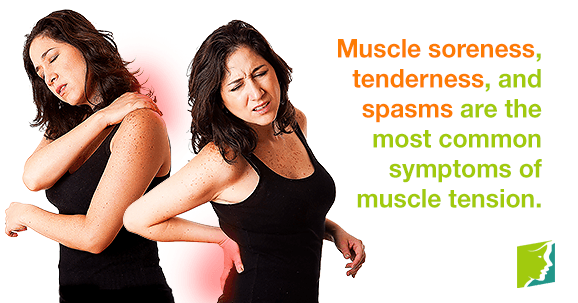Muscle tension is a common symptom of the menopausal transition. The most common cause of muscle tension during this phase is an imbalance in reproductive hormones. Muscle tension can be painful, frustrating, and annoying. The first step to tackling muscle tension is to find out more about the symptoms. There are five main symptoms of muscle tension. Keep reading to discover what these are.
Tight Muscles
Feeling your muscles tightening is one of the most immediately noticeable symptoms of muscle tension. It might be that you become aware of muscles you did not know you had as they begin tightening when you perform certain physical tasks. Relaxing your muscles is key to combating muscle tension, so you should try to avoid doing anything which might cause you to strain them.
Muscle Soreness or Tenderness
As your muscles get increasingly tighter, they might also become more tender and painful. This particular symptom is what causes the burning feeling you might experience in areas where the muscles are affected and tense. It is important to try to give your muscles time to recover and repair themselves.
Tension Headaches
One of primary causes of tension headaches is muscle tension around the head and neck. This type of headache can feel like a continuous pressure, as though your head is being constantly squeezed on all sides. Often, these headaches will cause you to experience pain in both sides of your head simultaneously. Though experiencing severe pain from one of these headaches is not common, the constant nature of them can be frustrating.
Fatigue
Another one of the symptoms that you might find yourself suffering from as a result of muscle tension is fatigue. You may begin to notice that you are feeling a lot more tired than what has always been usual for you. If you start to find that you are spending your days dreaming of being back in bed, or if you begin to notice you are getting sleepy in the middle of the afternoon, then it could be a result of the fatigue brought on by muscle tension.
Muscle Spasms
Muscle tension can lead to both cramping and spasms. A muscle spasm is the involuntary, sudden, and seemingly spontaneous contraction of one of your muscles. Though they are harmless and usually only last for a short amount of time, they can still cause you to feel an intense, sharp pain and may trigger distress.
Muscle tension can be one of the more painful symptoms of menopause. The first step to reducing and reliving your suffering is understanding why it is occurring, and correctly identifying what it is that's causing distress. If you recognize these five symptoms appearing in yourself, then you might be suffering from muscle tension.
Sources
- International Stress Management Association.(n.d)."Tension". Retrieved from www.isma-usa.org.
- Help Guide.(n.d)."Understanding Stress". Retrieved from Helpguide.org.
- MacArthur, John and Catherine.(n.d) "Muscle Tension". Stockholm University.Retrieved from www.macses.ucsf.edu
- National Health Service UK. (2013). Back pain - Prevention. Retrieved August 23, 2013, from http://www.nhs.uk/Conditions/Back-pain/Pages/Prevention.aspx



